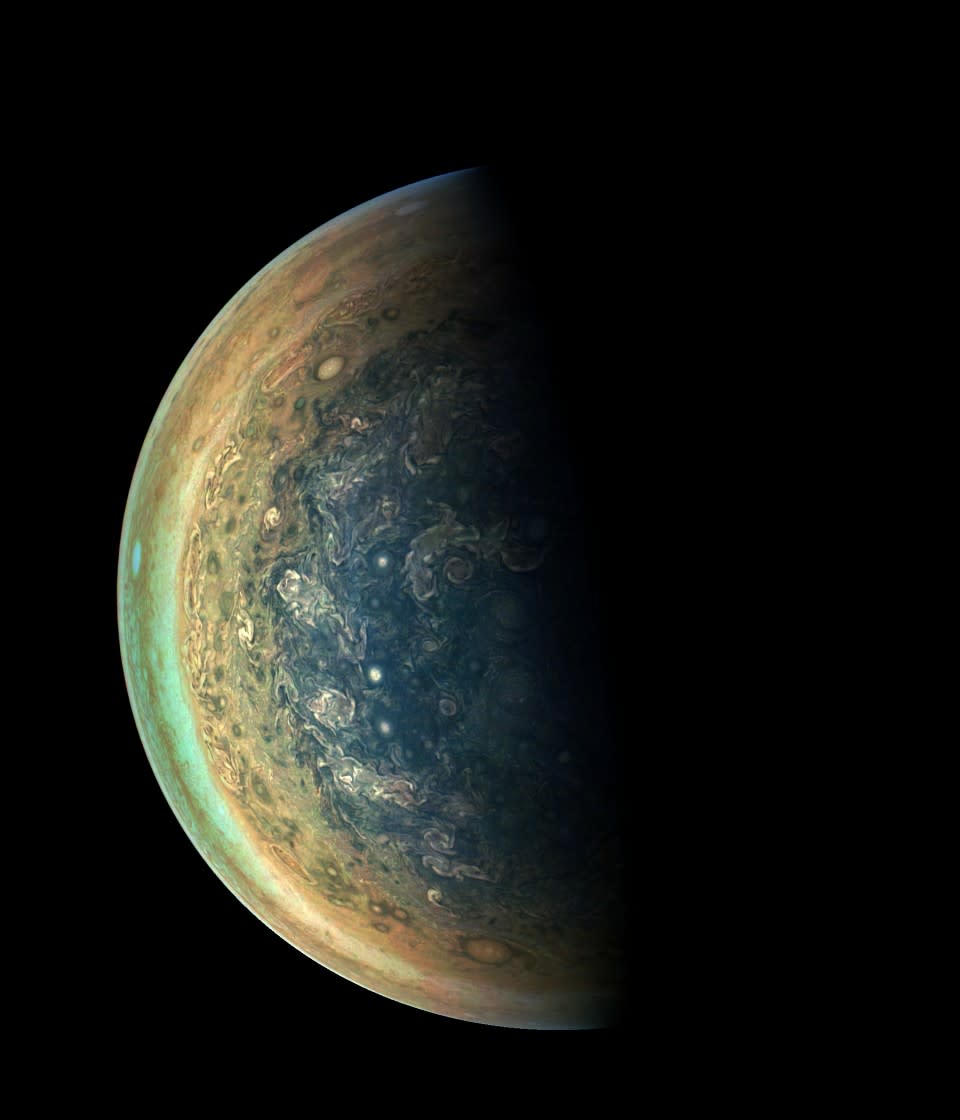Asteroid from alien star system spotted near Jupiter

Scientists have spotted an ‘alien’ asteroid in our solar system, which they believe is the first object to enter our system from another.
The asteroid, known as 2015 BZ509 and currently in Jupiter’s orbit, was captured from another star system – and orbits around the sun the ‘wrong’ way.
The find could offer answers to the questions about planet formation, solar system evolution, and possibly the origin of life itself, the scientists who discovered it say.
All of the planets in our solar system, and the vast majority of other objects as well, travel around the Sun in the same direction.

But 2015 BZ509 is different – it moves in the opposite direction in what is known as a ‘retrograde’ orbit.
‘How the asteroid came to move in this way while sharing Jupiter’s orbit has until now been a mystery,’ says Dr. Fathi Namouni, a researcher at France’s Nice Observatory.
‘If 2015 BZ509 were a native of our system, it should have had the same original direction as all of the other planets and asteroids, inherited from the cloud of gas and dust that formed them.’
MOST POPULAR TODAY ON YAHOO
Sir Elton John’s reaction to Pastor Michael Curry’s Royal Wedding sermon is priceless
Amazing moment Aer Lingus jet flew over crowds gathering at Windsor for Royal Wedding
One expensive crash! Two supercars worth combined £300k in horror smash
Man dies in Tesco Express in Oldham after ‘threats were made to supermarket staff’
The team ran simulations to trace the location of 2015 BZ509 right back to the birth of our solar system, 4.5 billion years ago when the era of planet formation ended.
These show that 2015 BZ509 has always moved in this way, and so could not have been there originally and must have been captured from another system.
‘Asteroid immigration from other star systems occurs because the Sun initially formed in a tightly-packed star cluster, where every star had its own system of planets and asteroids,’ says Dr. Helena Morai.
‘The close proximity of the stars, aided by the gravitational forces of the planets, help these systems attract, remove, and capture asteroids from one another.’

 Yahoo Movies
Yahoo Movies 

